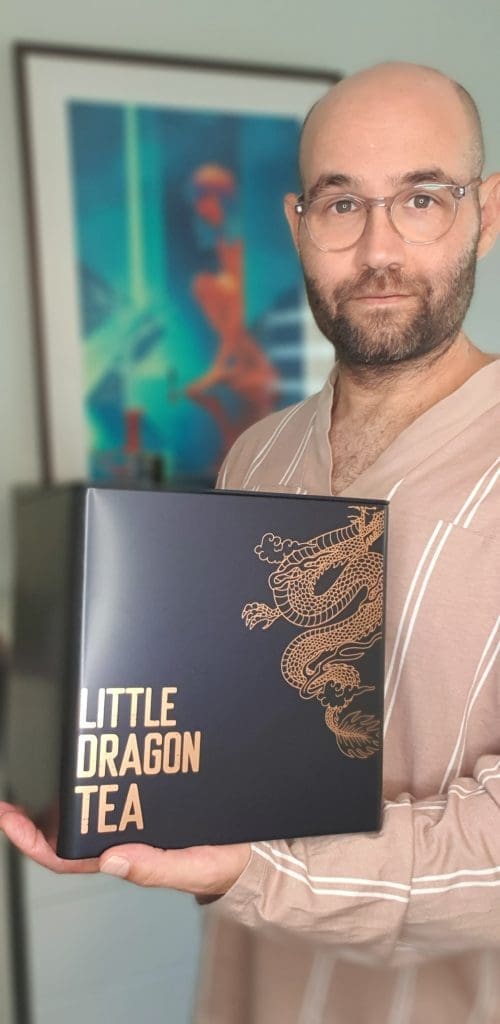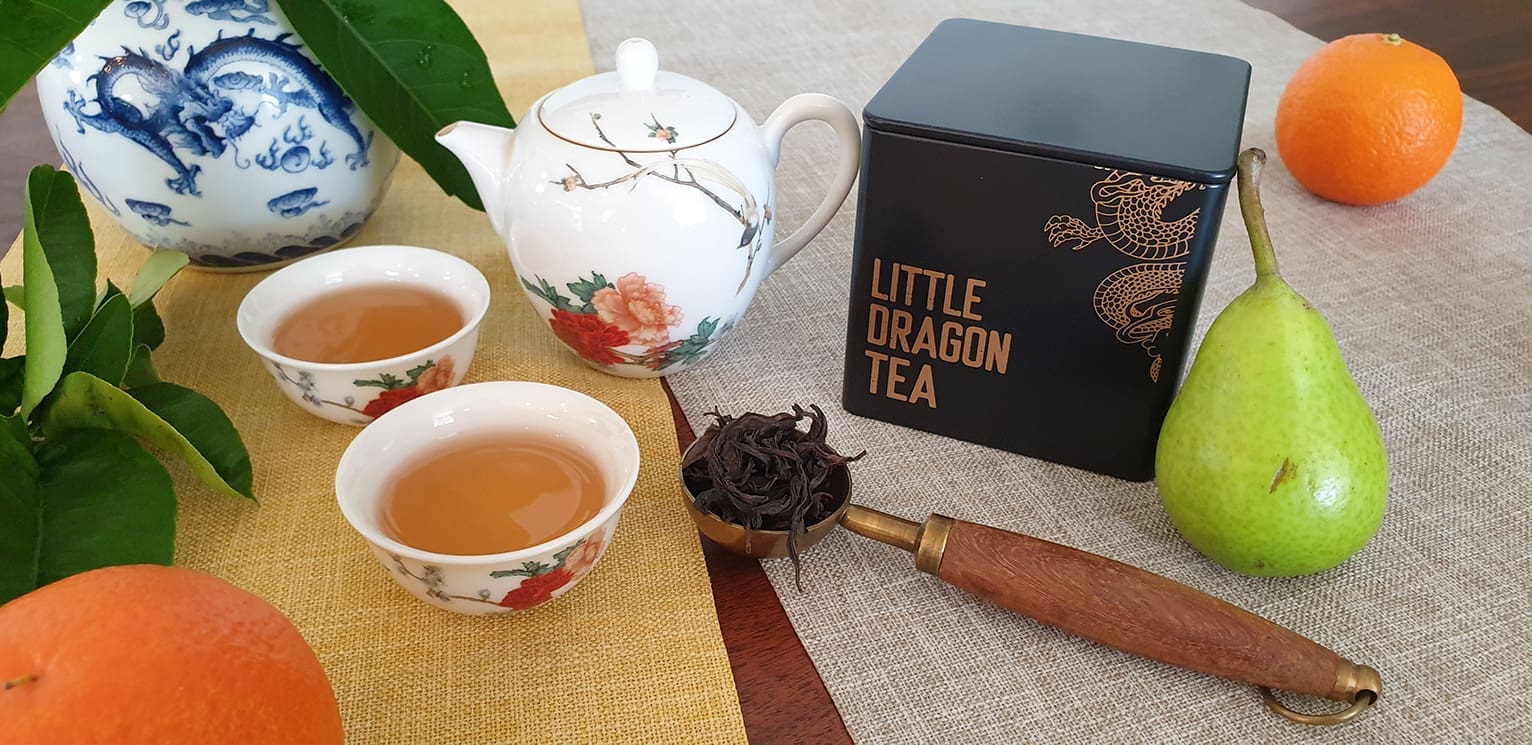The Fire Behind Little Dragon
You can have your big goals and 10-year visions but at the same time, it’s important to appreciate the little things in life. And there is often no better way to do this than with a good cup of tea. Finding said good cup of tea hasn’t always been easy though. So Bob Lajes, the founder of Little Dragon Tea, set out to change this by bringing the world’s best tea to New Zealand.
He shares with us his journey so far, the hurdles along the way and the evolution of his why.
Define your why – What is it that drives you and what you do?
I want to bring the practice of sustainable farming into the conversation. When you sip a tea produced this way by a master, your face lights up in delight because you have just discovered how dynamic tea is.
I’m here to share that with Kiwis because there is an artistry in tea production. Not all tea is created equal and tea from a true tea master can be sublime.
Has your “why” evolved since you started?
I’ve gone from simply wanting better tea on hand for myself to building a business that connects sustainability with an amazing experience in your cup.
What are some of the hurdles that go up against your why?
One hurdle is sourcing tea that meets my exacting standards – particularly because I’m doing this remotely. But over time, I’ve gradually started building up relationships with tea masters who share my values.
The other hurdle is not having a physical space where I can share tea with people. Tea is an experience, whether it’s a formal ceremony or a casual cuppa and I’m here to help deliver that experience – to share all that I know and love about tea with as many people as I can. Presently, I’m not quite in the position to open a shop, but maybe it will be in the cards one day. It would be an honour to be able to share tea that way.
What was the catalyst for you to choose what you do?
My wife, Kim, sparked my interest in tea more than a decade ago. From there, I studied all aspects of it – including its history and varietals (yes, there are many similarities to wine) as well as its production and the production of tea wares.
When we moved to New Zealand, I was missing the thriving tea scene I was used to back home. It was hard to find tea that was high quality, grown sustainably, and affordable enough to drink regularly, so I leaned on my connections and began importing it myself.

It’s one thing to have a long term vision but it’s another thing to keep yourself motivated daily. What techniques do you use to keep the momentum going?
This is one that I’m still figuring out, but at my core, I love tea. It is very much integrated into my daily life. I’m lucky that I’ve found something that I truly love and it is something that taps into wellness. Every cup is a gentle reminder. Also, when I have an idea, I write it down immediately. If not, that little gold nugget slips away into the ether forever.
Often as business leaders and sole traders, there is some stoic pressure to keep an optimistic front to staff, customers and stakeholders in times of uncertainty. How was your business impacted by the lockdowns?
Tea is an experience. When I held the stall at my local farmer’s market, I had a physical space to build a community. I’m grateful to those that have shared tea with me in that time. Many of them have found me online and continue to purchase Little Dragon Tea. I can recreate that experience for those people online, but I can’t do that for new customers so business has slowed down.
But I try to stay optimistic. I know how beautiful our tea is and our customers know too. And I’m still finding ways to make something special for those that are yet to discover Little Dragon Tea.
How do you think we balance that with the need also to be honest and seek help when needed?
I’m fortunate that I have a full-time job to keep us afloat, but the downside of that is that I can’t always dedicate as much time as I’d like to Little Dragon Tea. It can be stressful and it’s important to stay optimistic and grounded. Some days that doesn’t work. I’m not too proud to say I need help or to admit I’ve made a mistake. This is how we learn, after all.
It is a dynamic that encourages me to be patient. I have to give myself permission to take my time and to be okay with the pace of things.
One contrast from working in a corporate environment versus running my own business is that there is often infrastructure around wellbeing in corporations today. As a community, we could use that kind of support mechanism for SMEs. The amount of pressure business owners face daily is staggering, but when you recognise you need help, there are places you can turn. In fact, Xero have a brilliant initiative, the Xero Assistance Programme (XAP), that offers free and confidential counselling support to Kiwi small business owners, their employees and their families.
What tools do you use to make your business run efficiently? And how do they help you streamline your day-to-day?
We’ve built Little Dragon Tea on the Shopify platform. Because it is built specifically for eCommerce, many of the core features to kick off an eComm business are already built-in. Then, there is an entire network of apps and developers that allow you to integrate heaps of features into your site. I’ve been able to design some sophisticated campaigns with the tools available there.
What things do you do to help process stress?
A while back, I read James Clear’s “Atomic Habits”. One of his many gems is the idea of “habit stacking” where you couple a “good” habit with a new habit you want to integrate. I’ve been doing yoga off and on for a very long time, but during the second lockdown, I fell off hard and was feeling physically broken. I decided to start habit-stacking by drinking tea before my yoga practice at home in the morning. This has evolved into a meditation practice coupled with yoga which makes a marked difference in my physical and emotional wellbeing.
It can be hard to separate work and home at the best of times let alone during lockdowns. How do you find a healthy balance in your days?
Many small tea breaks. This gives me a moment to pause and regroup.
A lot of SMEs have been doing it tough over the last 2 years but we are still and will continue to be a vital part of the country’s economic growth. What opportunities do you see for small businesses to drive this even further?
I think it’s all about community-building both between customers and business and among businesses themselves. There is so much untapped opportunity for collaboration among adjacent businesses. This kind of activity can strengthen the community and the individual businesses.
If you could go back and give yourself a piece of advice at the start of this journey, what would it be?
I would say focus on creating content that deepens a consumer’s understanding of tea and put more attention towards building an online community where customers can share a tea experience. This would amount to greater trust between Little Dragon Tea and our customers.

